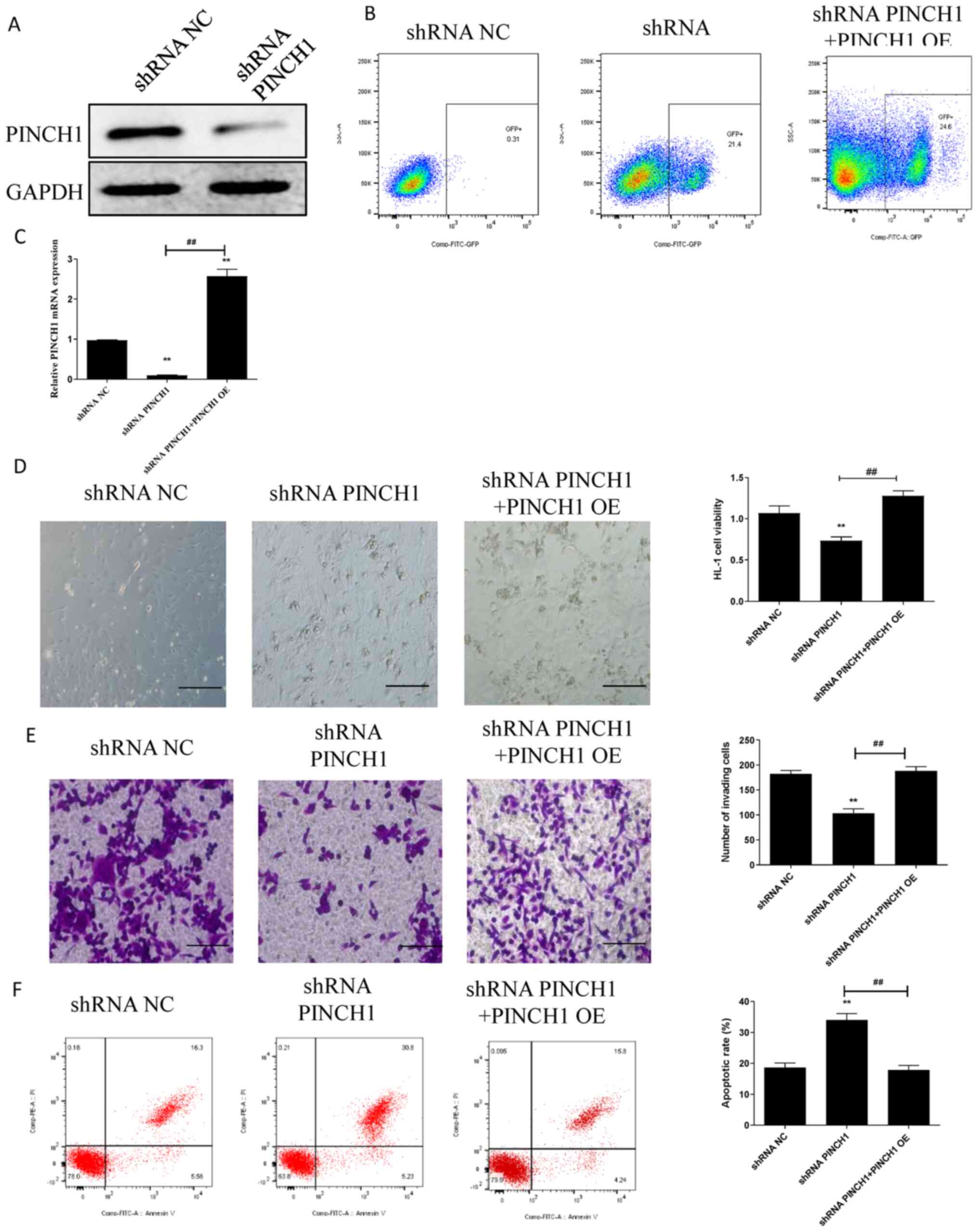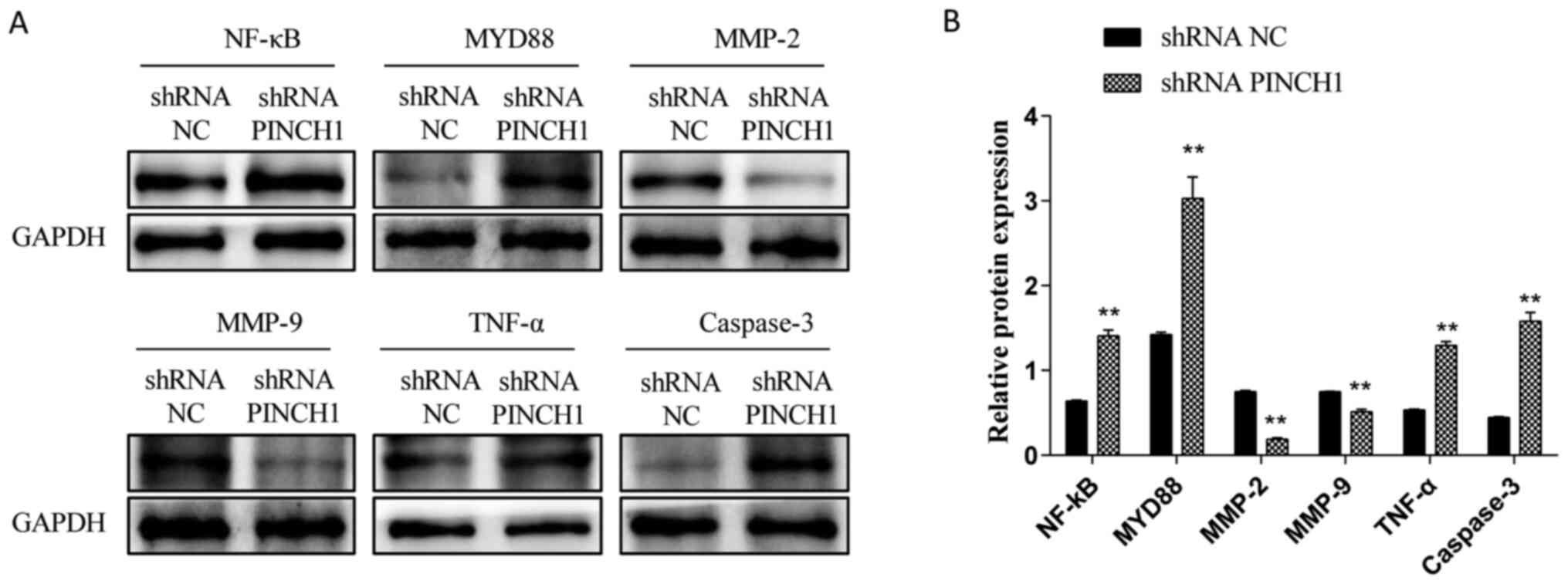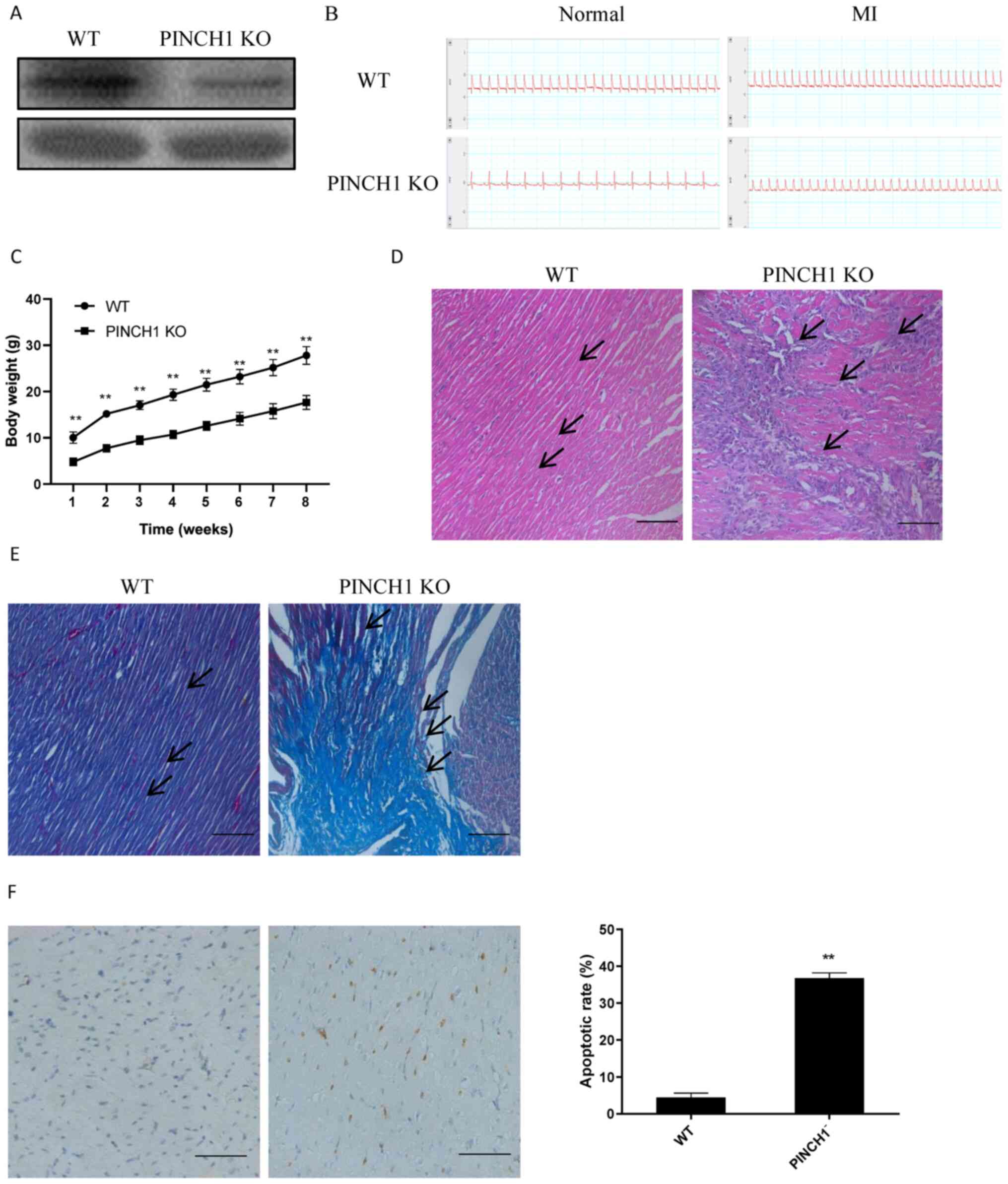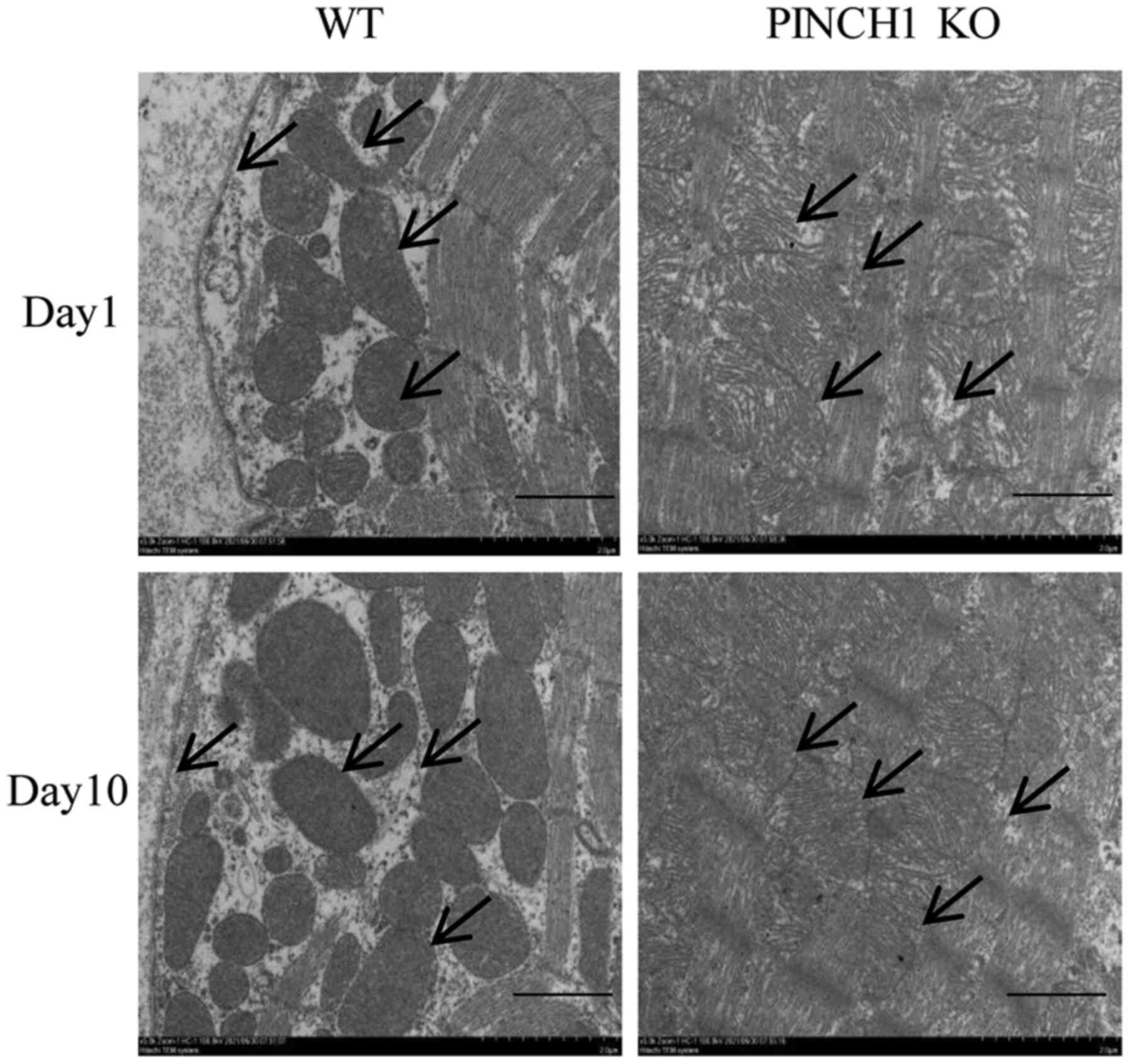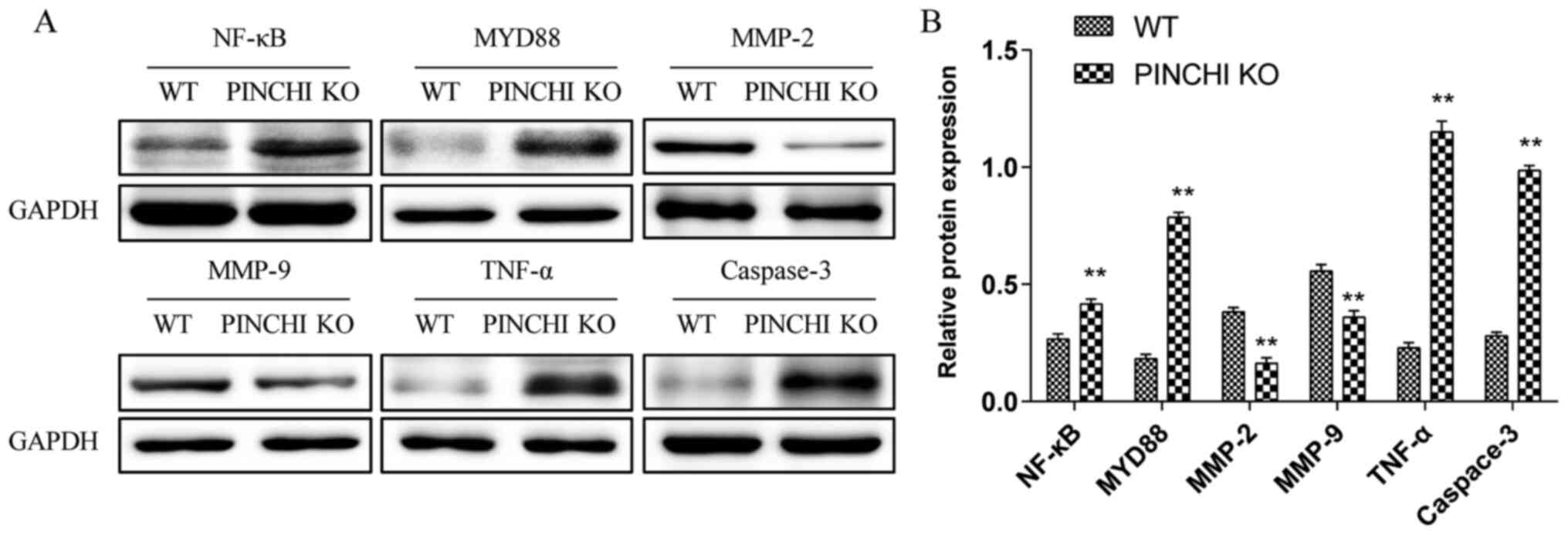|
1
|
Sopko N, Qin Y, Finan A, Dadabayev A,
Chigurupati S, Qin J, Penn MS and Gupta S: Significance of thymosin
β4 and implication of PINCH-1-ILK-α-parvin (PIP) complex in human
dilated cardiomyopathy. PLoS One. 6(e20184)2011.PubMed/NCBI View Article : Google Scholar
|
|
2
|
Zou L, Ma X, Lin S, Wu B, Chen Y and Peng
C: Bone marrow mesenchymal stem cell-derived exosomes protect
against myocardial infarction by promoting autophagy. Exp Ther Med.
18:2574–2582. 2019.PubMed/NCBI View Article : Google Scholar
|
|
3
|
Zhang HR, Bai H, Yang E, Zhong ZH, Chen
WY, Xiao Y, Gu YH and Lu SF: Effect of moxibustion preconditioning
on autophagy-related proteins in rats with myocardial ischemia
reperfusion injury. Ann Transl Med. 7(559)2019.PubMed/NCBI View Article : Google Scholar
|
|
4
|
Wang R, Wang M, Zhou J, Ye T, Xie X, Ni D,
Ye J, Han Q, Di C, Guo L, et al: Shuxuening injection protects
against myocardial ischemia-reperfusion injury through reducing
oxidative stress, inflammation and thrombosis. Ann Transl Med.
7(562)2019.PubMed/NCBI View Article : Google Scholar
|
|
5
|
Jiang T, Zhang L, Ding M and Li M:
Protective effect of vasicine against myocardial infarction in rats
via modulation of oxidative stress, inflammation, and the PI3K/Akt
pathway. Drug Des Devel Ther. 13:3773–3784. 2019.PubMed/NCBI View Article : Google Scholar
|
|
6
|
Zhang C, Liang R, Gan X, Yang X, Chen L
and Jian J: MicroRNA-384-5p/Beclin-1 as potential indicators for
epigallocatechin gallate against cardiomyocytes ischemia
reperfusion injury by inhibiting autophagy via PI3K/Akt pathway.
Drug Des Devel Ther. 13:3607–3623. 2019.PubMed/NCBI View Article : Google Scholar
|
|
7
|
Belete S, Punjabi K, Afoke J and Anderson
J: Surgical management of post-infarction ventricular septal
defect, mitral regurgitation and ventricular aneurysm. J Surg Case
Rep. 2019(rjz256)2019.PubMed/NCBI View Article : Google Scholar
|
|
8
|
Liang X, Sun Y, Ye M, Scimia MC, Cheng H,
Martin J, Wang G, Rearden A, Wu C, Peterson KL, et al: Targeted
ablation of PINCH1 and PINCH2 from murine myocardium results in
dilated cardiomyopathy and early postnatal lethality. Circulation.
120:568–576. 2009.PubMed/NCBI View Article : Google Scholar
|
|
9
|
Braun A, Bordoy R, Stanchi F, Moser M,
Kostka GG, Ehler E, Brandau O and Fässler R: PINCH2 is a new five
LIM domain protein, homologous to PINCH and localized to focal
adhesions. Exp Cell Res. 284:239–250. 2003.PubMed/NCBI View Article : Google Scholar
|
|
10
|
Liang X, Zhou Q, Li X, Sun Y, Lu M, Dalton
N, Ross J Jr and Chen J: PINCH1 plays an essential role in early
murine embryonic development but is dispensable in ventricular
cardiomyocytes. Mol Cell Biol. 25:3056–3062. 2005.PubMed/NCBI View Article : Google Scholar
|
|
11
|
Pan SP, Pirker T, Kunert O, Kretschmer N,
Hummelbrunner S, Latkolik SL, Rappai J, Dirsch VM, Bochkov V and
Bauer R: C13 megastigmane derivatives from epipremnum pinnatum:
β-Damascenone inhibits the expression of pro-inflammatory cytokines
and leukocyte adhesion molecules as well as NF-κB signaling. Front
Pharmacol. 10(1351)2019.PubMed/NCBI View Article : Google Scholar
|
|
12
|
Zhang J, Lei JR, Yuan LL, Wen R and Yang
J: Response gene to complement-32 promotes cell survival via the
NF-κB pathway in non-small-cell lung cancer. Exp Ther Med.
19:107–114. 2020.PubMed/NCBI View Article : Google Scholar
|
|
13
|
Ge ZW, Wang BC, Hu JL, Sun JJ, Wang S,
Chen XJ, Meng SP, Liu L and Cheng ZY: IRAK3 gene silencing prevents
cardiac rupture and ventricular remodeling through negative
regulation of the NF-κB signaling pathway in a mouse model of acute
myocardial infarction. J Cell Physiol. 234:11722–11733.
2019.PubMed/NCBI View Article : Google Scholar
|
|
14
|
Han A, Lu Y, Zheng Q, Zhang J, Zhao Y,
Zhao M and Cui X: Qiliqiangxin attenuates cardiac remodeling via
inhibition of TGF-β1/Smad3 and NF-κB signaling pathways in a rat
model of myocardial infarction. Cell Physiol Biochem. 45:1797–1806.
2018.PubMed/NCBI View Article : Google Scholar
|
|
15
|
He Q, Zhou W, Xiong C, Tan G and Chen M:
Lycopene attenuates inflammation and apoptosis in post-myocardial
infarction remodeling by inhibiting the nuclear factor-κB signaling
pathway. Mol Med Rep. 11:374–378. 2015.PubMed/NCBI View Article : Google Scholar
|
|
16
|
Jin JL, Deng ZT, Lyu RG, Liu XH and Wei
JR: Expression changes of Notch and nuclear factor-κB signaling
pathways in the rat heart with myocardial infarction. Zhonghua Xin
Xue Guan Bing Za Zhi. 45:507–512. 2017.PubMed/NCBI View Article : Google Scholar : (In Chinese).
|
|
17
|
Gupta S, Kumar S, Sopko N, Qin Y, Wei C
and Kim IK: Thymosin β4 and cardiac protection: Implication in
inflammation and fibrosis. Ann N Y Acad Sci. 1269:84–91.
2012.PubMed/NCBI View Article : Google Scholar
|
|
18
|
Qiu P, Wheater MK, Qiu Y and Sosne G:
Thymosin beta4 inhibits TNF-alpha-induced NF-kappaB activation,
IL-8 expression, and the sensitizing effects by its partners
PINCH-1 and ILK. FASEB J. 25:1815–1826. 2011.PubMed/NCBI View Article : Google Scholar
|
|
19
|
Chen J, Kubalak SW, Minamisawa S, Price
RL, Becker KD, Hickey R, Ross J Jr and Chien KR: Selective
requirement of myosin light chain 2v in embryonic heart function. J
Biol Chem. 273:1252–1256. 1998.PubMed/NCBI View Article : Google Scholar
|
|
20
|
Sandfort V, Eke I and Cordes N: The role
of the focal adhesion protein PINCH1 for the radiosensitivity of
adhesion and suspension cell cultures. PLoS One.
5(e13056)2010.PubMed/NCBI View Article : Google Scholar
|
|
21
|
Zhang W, Tian Y, Gao Q, Li X, Li Y, Zhang
J, Yao C, Wang Y, Wang H, Zhao Y, et al: Inhibition of apoptosis
reduces diploidization of haploid mouse embryonic stem cells during
differentiation. Stem Cell Reports. 15:185–197. 2020.PubMed/NCBI View Article : Google Scholar
|
|
22
|
Yokokawa T, Yoshihisa A, Kanno Y, Abe S,
Misaka T, Yamada S, Kaneshiro T, Sato T, Oikawa M, Kobayashi A, et
al: Circulating acetoacetate is associated with poor prognosis in
heart failure patients. Int J Cardiol Heart Vasc.
25(100432)2019.PubMed/NCBI View Article : Google Scholar
|
|
23
|
Luo ZR, Li H, Xiao ZX, Shao SJ, Zhao TT,
Zhao Y, Mou FF, Yu B and Guo HD: Taohong siwu decoction exerts a
beneficial effect on cardiac function by possibly improving the
microenvironment and decreasing mitochondrial fission after
myocardial infarction. Cardiol Res Pract.
2019(5198278)2019.PubMed/NCBI View Article : Google Scholar
|
|
24
|
Neyrinck K, Breuls N, Holvoet B,
Oosterlinck W, Wolfs E, Vanbilloen H, Gheysens O, Duelen R, Gsell
W, Lambrichts I, et al: The human somatostatin receptor type 2 as
an imaging and suicide reporter gene for pluripotent stem
cell-derived therapy of myocardial infarction. Theranostics.
8:2799–2813. 2018.PubMed/NCBI View Article : Google Scholar
|
|
25
|
Puddighinu G, D'Amario D, Foglio E, Manchi
M, Siracusano A, Pontemezzo E, Cordella M, Facchiano F, Pellegrini
L, Mangoni A, et al: Molecular mechanisms of cardioprotective
effects mediated by transplanted cardiac ckit+ cells
through the activation of an inflammatory hypoxia-dependent
reparative response. Oncotarget. 9:937–957. 2017.PubMed/NCBI View Article : Google Scholar
|
|
26
|
Wang B, Zhang L, Cao H, Yang J, Wu M, Ma
Y, Fan H, Zhan Z and Liu Z: Myoblast transplantation improves
cardiac function after myocardial infarction through attenuating
inflammatory responses. Oncotarget. 8:68780–68794. 2017.PubMed/NCBI View Article : Google Scholar
|
|
27
|
Meder B, Huttner IG, Sedaghat-Hamedani F,
Just S, Dahme T, Frese KS, Vogel B, Köhler D, Kloos W, Rudloff J,
et al: PINCH proteins regulate cardiac contractility by modulating
integrin-linked kinase-protein kinase B signaling. Mol Cell Biol.
31:3424–3435. 2011.PubMed/NCBI View Article : Google Scholar
|
|
28
|
Singh MV, Swaminathan PD, Luczak ED,
Kutschke W, Weiss RM and Anderson ME: MyD88 mediated inflammatory
signaling leads to CaMKII oxidation, cardiac hypertrophy and death
after myocardial infarction. J Mol Cell Cardiol. 52:1135–1144.
2012.PubMed/NCBI View Article : Google Scholar
|
|
29
|
Gu C, Wang F, Zhao Z, Wang H, Cong X and
Chen X: Lysophosphatidic acid is associated with atherosclerotic
plaque instability by regulating NF-κB dependent matrix
metalloproteinase-9 expression via LPA2 in macrophages.
Front Physiol. 8(266)2017.PubMed/NCBI View Article : Google Scholar
|
|
30
|
Wang Q, Sui X, Sui DJ and Yang P:
Flavonoid extract from propolis inhibits cardiac fibrosis triggered
by myocardial infarction through upregulation of SIRT1. Evid Based
Complement Alternat Med. 2018(4957573)2018.PubMed/NCBI View Article : Google Scholar
|
|
31
|
Ibarra-Lara L, Sánchez-Aguilar M,
Soria-Castro E, Vargas-Barrón J, Roldán FJ, Pavón N, Torres-Narváez
JC, Cervantes-Pérez LG, Pastelín-Hernández G and Sánchez-Mendoza A:
Clofibrate treatment decreases inflammation and reverses myocardial
infarction-induced remodelation in a rodent experimental model.
Molecules. 24(270)2019.PubMed/NCBI View Article : Google Scholar
|















